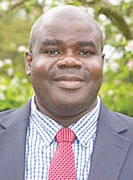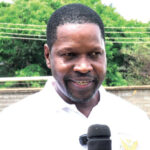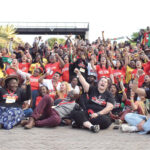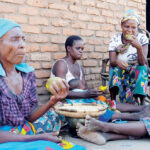
Associate Professor of Political Science at the University of Malawi, Bonface Dulani, has warned smaller political parties against being carried away by the euphoria that comes with political alliances, saying they risk being deregistered if they continue to misfire in elections.
Dulani made the observation while presenting a paper on ‘Unpacking the Political Economy of the 2025 Malawi Electoral Process’ during a stakeholders’ dialogue that attracted officials from Malawi Electoral Commission (Mec), the Malawi Police Service, the National Registration Bureau, political parties, civil society organisations, the media and development partners.
According to Dulani, while there is a feel-good factor in rubbing shoulders with the larger parties in an electoral alliance, smaller parties must not forget to position themselves strongly so that they too can win some form of representation.
He explained that the Political Parties Act of 2018 imposes several conditions for the continued registration of political parties.
Among other things, the Act, according to Dulani, stipulates the deregistration of parties that have failed to secure at least one seat in parliamentary elections or two local government seats, or at least five percent of the national vote in parliamentary elections after two general elections.
He added that the Act also proposes the deregistration of parties that have not held a convention within five consecutive years from the date of their registration or the last convention.
“If political parties are rushing into alliances, they might, of course, be part of a grand alliance, but that could be at the risk of appearing not to have participated in the elections themselves,” Dulani said.
He also observed that not many political parties seem to be reading the political laws.
Dulani further stated that issues of inflation, poverty, unemployment and destitution would play a significant role in affecting people’s chances of registering and voting.
The Democracy Works Foundation is holding the two-day multi-stakeholder dialogue to reflect on past electoral processes and identify strategies for improving electoral integrity.
The dialogue has brought together stakeholders to discuss lessons learned, best practices and ways to address recurring electoral challenges.
Mec Chairperson Justice Annabel Mtalimanja said as Malawi prepares for the 2025 General Elections, it is important to pause and reflect on previous elections, particularly on successes, challenges and lessons learned.
Democracy Works Foundation regional director Augustine Magolowondo said that people should be aware that elections are not just the responsibility of Mec but of various stakeholders.
Among other things, the dialogue seeks to identify recurring issues that have compromised electoral integrity in the past and reflect on what can be done differently in order to proactively manage or respond to such issues, with the aim of improving the 2025 electoral process.








